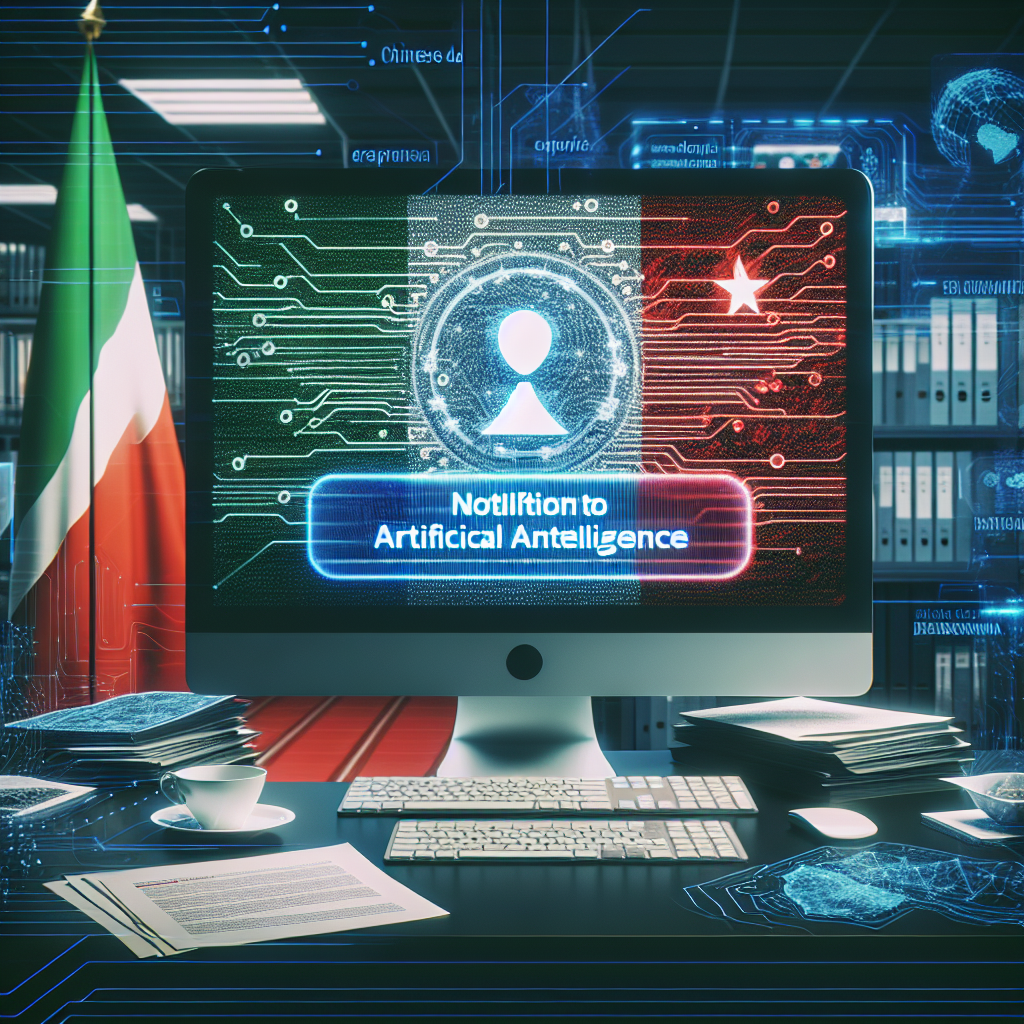Italy Bans Chinese DeepSeek AI Over Data Privacy and Ethical Concerns
In a significant move that has caught the attention of tech enthusiasts and privacy advocates alike, Italy has officially banned the use of the Chinese DeepSeek AI technology. This decision stems from serious concerns regarding data privacy and ethical implications associated with the AI’s capabilities. As the world increasingly turns to artificial intelligence to streamline processes and enhance productivity, the need for comprehensive regulations and scrutiny has never been more pressing.
The Rise of AI and Its Implications
Artificial Intelligence has revolutionized numerous sectors, including healthcare, finance, and education. With its ability to analyze vast amounts of data and draw conclusions, AI has become an indispensable tool for many organizations. However, with great power comes great responsibility. The use of AI systems has raised ethical questions and concerns regarding data privacy. In light of these issues, Italy’s decision to ban DeepSeek is seen as a precautionary measure to protect its citizens.
DeepSeek, developed by a Chinese tech company, has gained attention for its advanced algorithms capable of processing and analyzing personal data at an unprecedented scale. While such capabilities can enhance user experiences and drive innovation, they also pose significant risks. The potential for misuse or unauthorized access to sensitive information is a concern that cannot be ignored.
Data Privacy Concerns
Data privacy has become a critical topic globally, especially with the rise of AI technologies. The collection, storage, and analysis of personal data have prompted regulatory bodies to implement stringent measures to safeguard individuals’ information. In Italy, the decision to ban DeepSeek was primarily driven by concerns that the technology could infringe on citizens’ privacy rights.
The European Union has been at the forefront of advocating for data protection, with regulations such as the General Data Protection Regulation (GDPR) setting strict guidelines for how organizations handle personal information. Italy’s move aligns with these regulations, emphasizing the importance of data privacy and the need for transparency in AI systems. The ban on DeepSeek underscores Italy’s commitment to upholding these standards and ensuring that technology serves the public interest rather than jeopardizing it.
Ethical Implications of AI
Beyond data privacy, ethical considerations surrounding AI technology are paramount. The use of AI systems raises questions about bias, accountability, and the potential for discrimination. As AI learns from data, it can inadvertently perpetuate existing biases present in the information it processes. This can lead to unfair treatment of individuals based on race, gender, or other characteristics.
Italy’s ban on DeepSeek reflects a growing awareness of the ethical implications associated with AI technologies. Governments and organizations must prioritize ethical standards when developing and deploying AI solutions. The responsibility lies not only with tech companies but also with regulators to ensure that AI systems operate in a manner that is fair and just.
Public Reaction and Future Prospects
The public reaction to Italy’s ban on DeepSeek has been mixed. Privacy advocates have applauded the decision, viewing it as a necessary step to protect citizens’ rights. On the other hand, some industry insiders express concern that such bans could stifle innovation and hinder the growth of AI technologies in Europe.
As countries grapple with the implications of AI, striking a balance between innovation and ethical considerations will be crucial. Italy’s decision to ban DeepSeek serves as a reminder that regulatory measures must evolve alongside technological advancements. The challenge will be to create a framework that fosters innovation while safeguarding individuals’ rights and promoting ethical practices in AI development.
Implications for Global AI Policies
Italy’s ban raises important questions about the future of AI policies on a global scale. As countries navigate the complexities of data privacy and ethics, the need for international cooperation becomes evident. The global nature of technology means that policies in one country can have far-reaching implications for others.
Collaborative efforts among nations can lead to the establishment of universal standards for AI technologies. This would not only ensure consistency in regulations but also promote best practices for data privacy and ethical AI deployment. As Italy sets a precedent with its ban on DeepSeek, other countries may follow suit, leading to a ripple effect in global AI policies.
The Role of Tech Companies
In light of Italy’s decision, tech companies must reassess their approach to data privacy and ethical considerations. Companies developing AI technologies should prioritize transparency and accountability in their operations. This includes establishing clear data usage policies, conducting regular audits, and addressing potential biases in their algorithms.
Furthermore, collaboration with regulatory bodies can foster a better understanding of the implications of AI technologies. Engaging with stakeholders, including privacy advocates and ethicists, can provide valuable insights into how to navigate the complex landscape of data privacy and ethics in AI.
Conclusion
Italy’s ban on Chinese DeepSeek AI marks a pivotal moment in the ongoing conversation surrounding data privacy and ethical AI. As technology continues to advance, the need for robust regulations and ethical standards becomes increasingly apparent. Italy’s commitment to protecting its citizens’ rights serves as a model for other countries to follow.
The ban also highlights the importance of addressing the ethical implications of AI technologies, ensuring that they are developed and deployed in a manner that is fair and just. As the global community grapples with the complexities of AI, collaborative efforts and open dialogue will play a vital role in shaping the future of technology.
In this rapidly evolving landscape, one thing is clear: the conversation surrounding data privacy and ethics will only continue to grow in significance. It is imperative for governments, organizations, and individuals to work together to establish frameworks that promote innovation while safeguarding the rights of citizens in an increasingly digital world.



